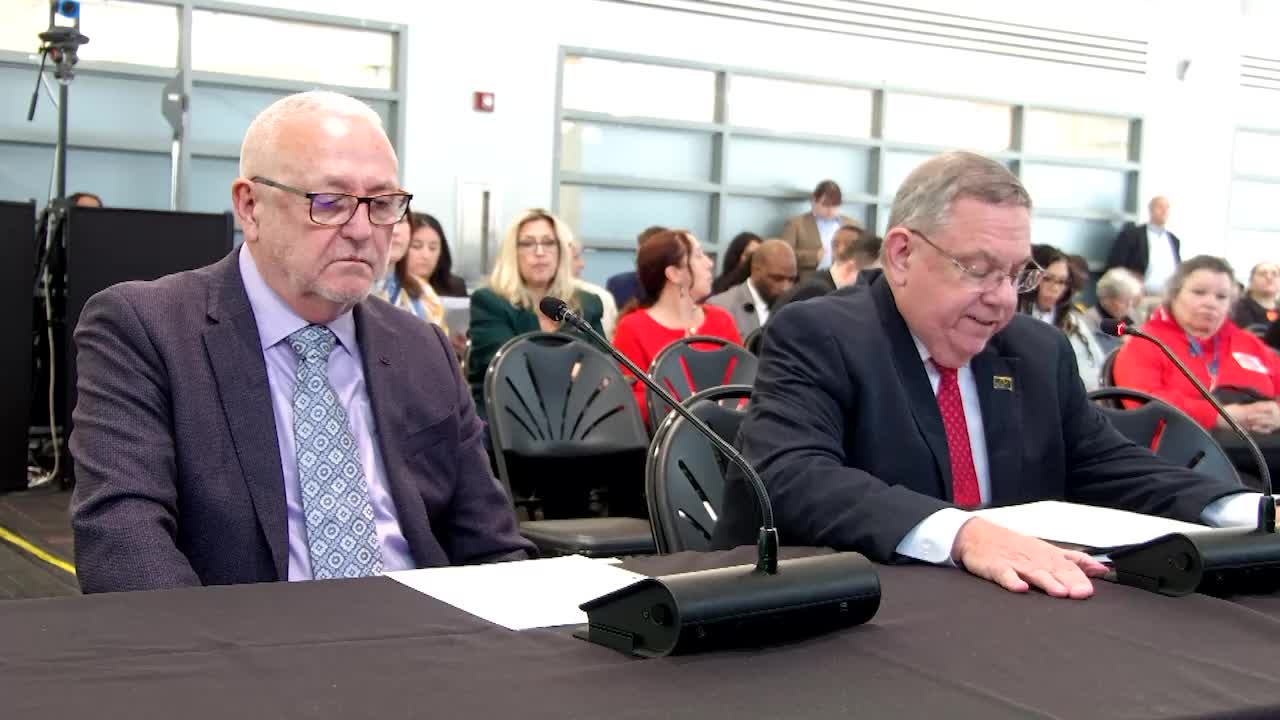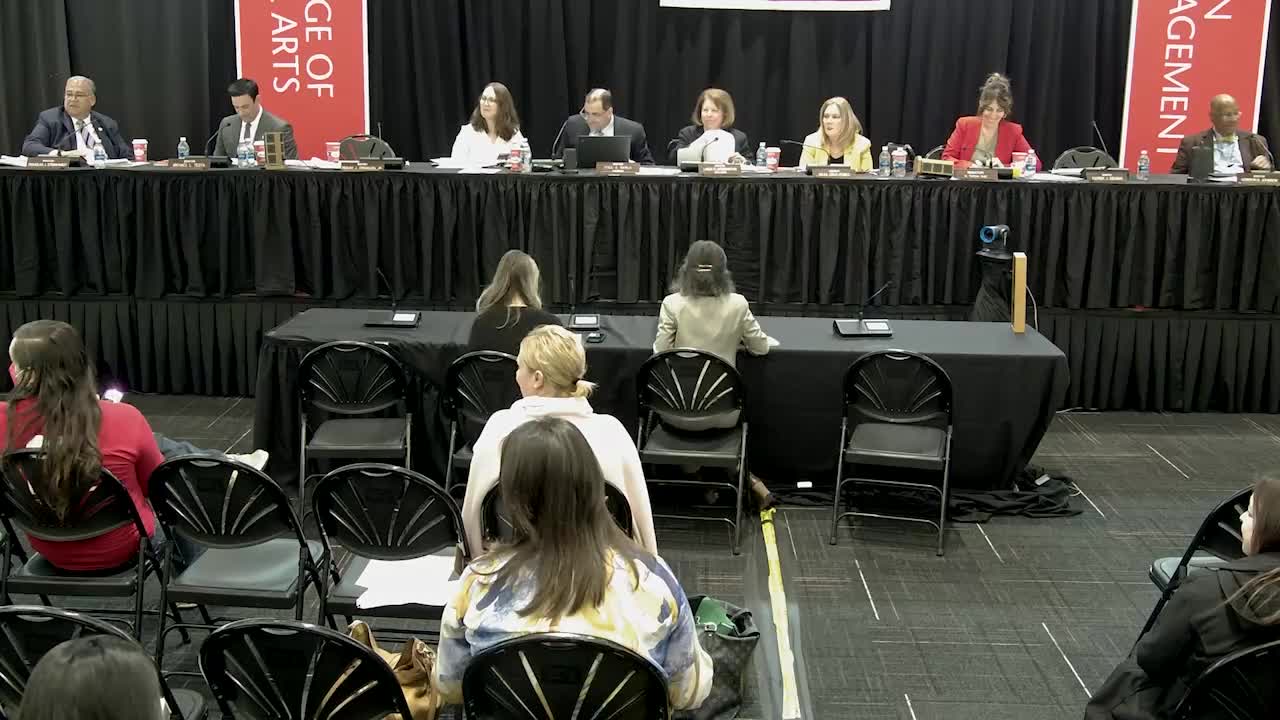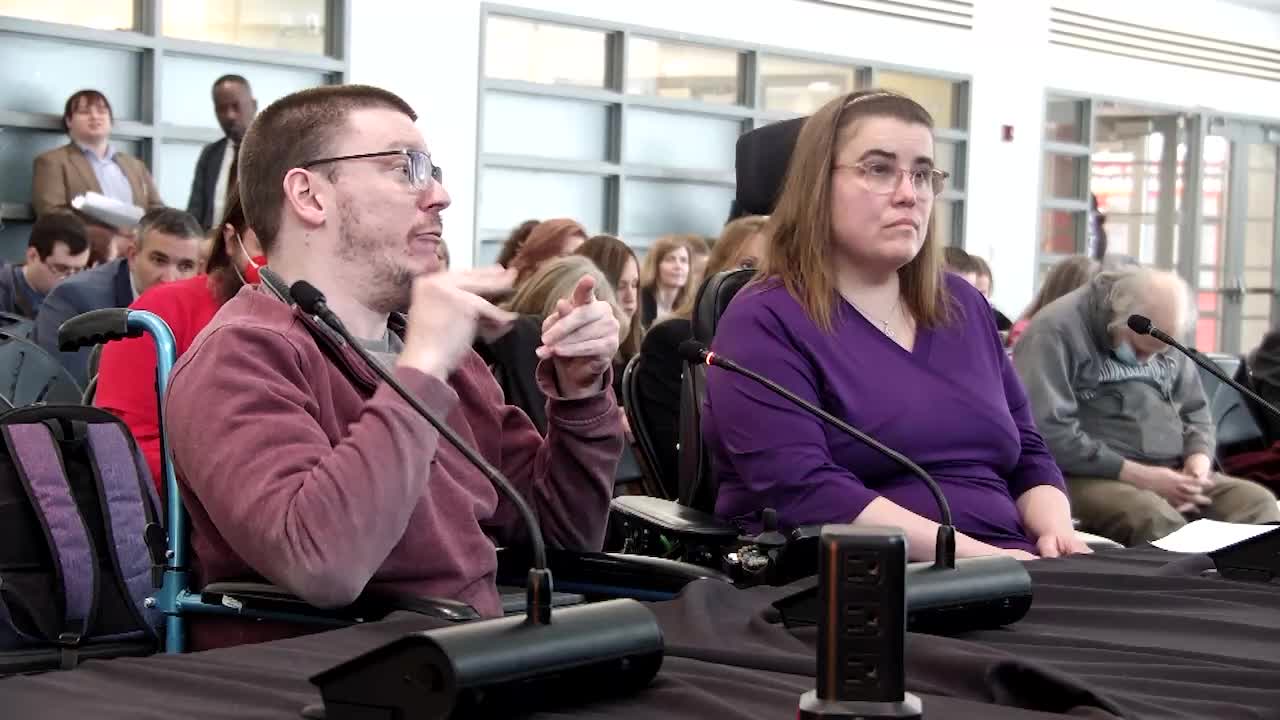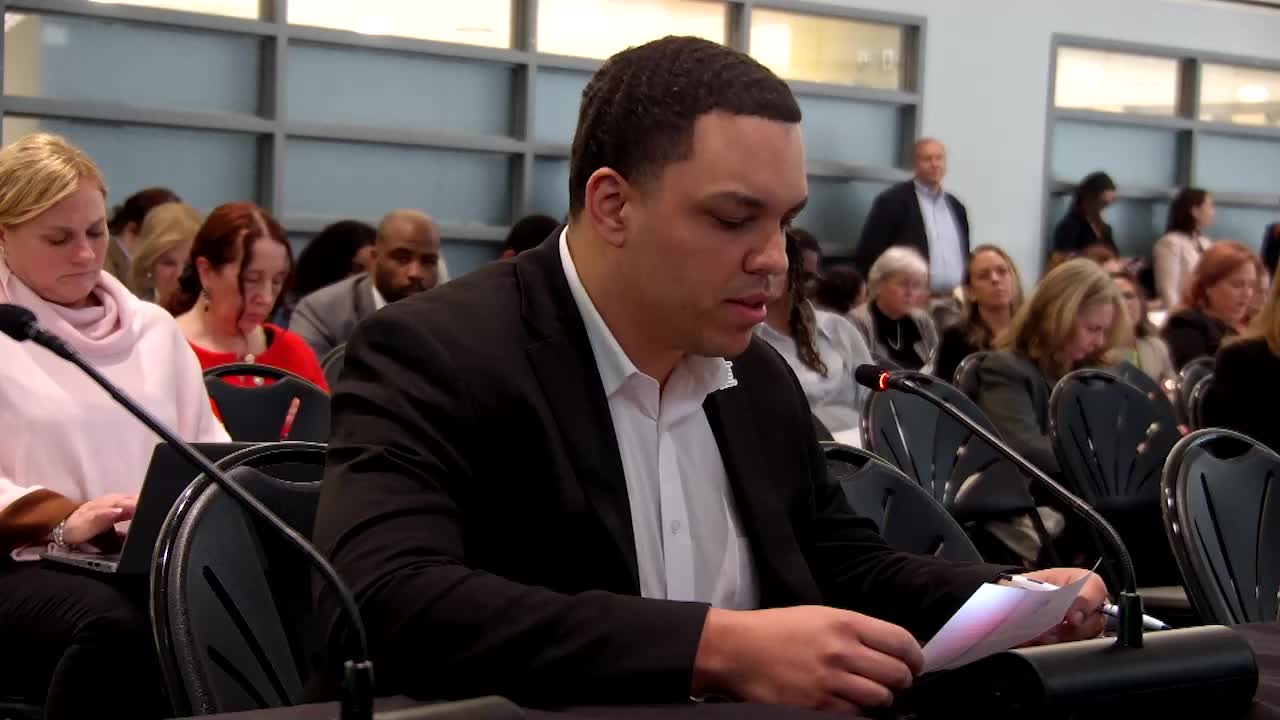Article not found
This article is no longer available. But don't worry—we've gathered other articles that discuss the same topic.

Providers warn cuts to extended‑employment and unstable DSP funding would harm adults with disabilities

Community college leaders, students urge legislature to restore $20 million in operating aid

Legal services groups and CASA volunteers warn budget cuts would shrink eviction defense and child advocacy services

Transit advocates press Legislature to restore subsidy, question agency revenue projections and ask for weekend service improvements

Immigrant advocates urge $19.5M for detention and deportation defense as ICE activity rises

District leaders say school funding formula and 6% cap leave districts underfunded; ask legislature for relief

